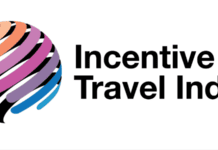
Travel incentives can have real bottom-line effects on attracting, retaining and motivating qualifiers, as any incentive planner could tell you. But what does the C-Suite think? SITE’s latest research, Leadership InSITES, reveals insights direct from C-Suite leaders on what they believe to be the business case for incentive travel for their companies.
For the study, which was conducted by the SITE Foundation and the Southern Methodist University’s Cox School of Business, SMU MBA students interviewed business leaders across the globe to gain insight into how they use incentive travel to drive sales, retain and engage employees and reinforce corporate culture. Here are five of the insights they gleaned from those conversations.
- Incentive travel not only drives clear, measurable sales results, but also rewards those who conduct business the way the company wants to sell. “We evaluate the number of qualifiers we have against the sales growth and overall income performance that we achieved in the same period so we can see if the data aligns — and it does,” said Jim Spradlin, former CEO, Growmark. Spradlin and his C-Suite peers agreed that it’s easy to see how incentive travel helps drive both sales and the sales behaviors they want to encourage for their company.
Not only does incentive travel enable a company to set goals and reward qualifiers for hitting their specific product mix targets, it also motivates participants to strengthen their connections to each other and to the company. It also rewards proper sales techniques, rather than the “potentially toxic sell at all cost” mentalities, the report found. C-Suite execs said they also are interested in expanding their incentive trip qualification into areas other than sales, despite some “lukewarm” results they had gotten from previous attempts. Those who have figured it out noted that it “has helped everyone at the company realize how critical non-sales staff are, and that incentive travel helps successfully retain talent and ensure employees feel valued,” the report stated.
- Incentive travel complements and supports compensation plans. As Mark Verratti, Chief Commercial Officer with Myriad Genetics told the researchers, “Oftentimes the incentive travel qualification metrics you choose can help you retain top talent. Incentive travel programs can be more inclusive, whereas compensation plans can sometimes favor certain individuals based on territory size or other characteristics.”
That’s because incentive travel enable companies to recognize both hard and soft employee contribution targets, as well as make it possible to reward teams that aren’t in the larger markets by considering factors that are harder to measure than just sales and quantitative growth metrics.
- Travel incentives can do more than just reflect company culture — they can help to shape it too. “The interactions, communication, the experience itself and the memories after — this is part of how we develop corporate culture,” said Mei Yang-Mille, Managing Director, Karl Storz-Endoskope Shanghai. Participants reinforce corporate culture through the in-person connections they make during travel incentives. They also create new ties to each other and the company mission, values and mission, she told the researchers. Travel incentives also can help planners better understand the different preferences and needs of qualifiers in different locations around the globe, as well as the corporate context within which they work.
- Incentive travel creates high-performing networks. As Jay Kvasnicka, Executive Vice President of Field Operations with US Foods told the researchers, “Incentive travel creates networks inside of our company that are broader than the specific marketplace [an employee] happens to work in, and there’s value in that. Not only is there value in retention, but there’s value in sharing best practices.” In fact, travel incentives help spread product trends and best practices beyond their originating point when high-performing individuals who otherwise likely would never interact begin to form relationships and share.
In fact, the networks that develop on a travel incentive can also give the C-Suite a direct and meaningful way to highlight those best practices their top performers are sharing, the researchers found.
- Travel incentives can forge better understanding of the vendors, suppliers and partners across a company’s supply chain — and of the destination itself. “After our 2019 incentive in Singapore, we saw business, particularly out of North America and Europe, increase as a result of participants understanding what we have [in Singapore] and what we’re able to offer,” said Markus Keller, Chief Sales & Distribution Officer, Accor. “We saw a boost in visibility and leads that resulted from people having been there and better understanding the destination relative to their own customers.”
The report concludes, “The very process, journey and life learnings from travel is what leaves qualifiers transformed for life, with experiences they simply cannot find elsewhere.” Those who want to take that transformative power to the next level are adding corporate social responsibility (CSR) activities that reflect the company and individual values of the qualifiers.
You Also May Be Interested In…
10 Employee and Customer Holiday Gifts That Give Back










